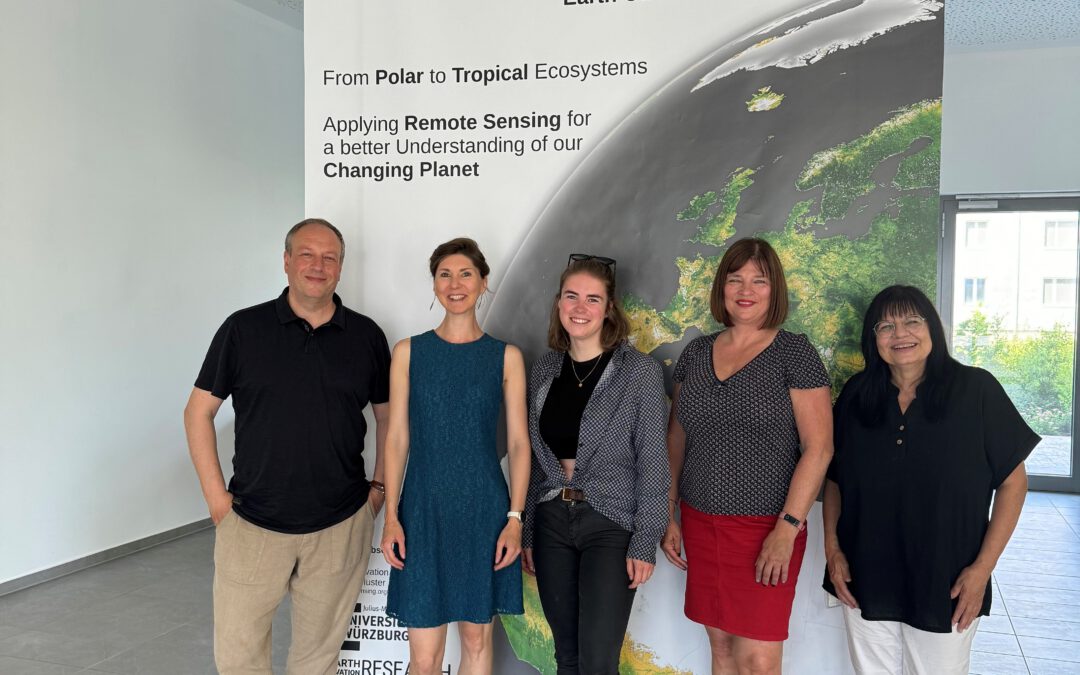The project NetCDA is coordinated at Julius-Maximilians-Universität Würzburg (JMU) in Würzburg. Since 2012, the Department of Remote Sensing, which is part of the newly formed Earth Observation Research Cluster at the JMU, has been an active participant in the Graduate Schools Program (GSP) of the West African Science Service Centre of Climate Change and Adapted Land Use (WASCAL) and specifically to their Doctoral Research Program (DRP). These programs focus on various technical and applied topics on adaptations to climate change in West Africa, providing crucial support and expertise to advance climate science and land use research.
Currently, the Department of Remote Sensing serves as the German partner for the DRP Climate Change and Land Use at Kwame Nkrumah University of Science and Technology (KNUST) in Kumasi, Ghana. This kind of partnership underscore the university’s commitment to fostering international collaboration and knowledge exchange in the fields of climate change and sustainable land use.
From end of 2023 to May 2024, nine students from West Africa joined our department for a research visit in Germany. Their diverse research backgrounds and doctoral topics ranged from water engineering, impacts of urbanisation (e.g., urban expansion and climate change, urban sprawl and ecosystem services), climate forecasting, the integration of remote sensing technologies and indigenous knowledge, and land degradation. An important component of their research visit is their integration at the university. Different networking opportunities are provided. For instance, the students are encouraged to present their work during the so-called ‘Werkstattsbericht’ of the Earth Observation Research Cluster and the seminars of the Geographic Institute. Intercultural experiences are also important for our students – for some, it is their first visit to Germany, often also to Europe. Therefore, field trips are made possible for them to experience (rural) Würzburg.
The team at the JMU consists of Dr. Michael Thiel, Alexandra Bell, Susanne Hedler, Sabine Oppmann, and Cora Haak.
Dr. Michael Thiel, from the Department of Remote Sensing at JMU, holds the official lead of the project and is involved in the supervision of several WASCAL doctoral students. His research focuses on remote sensing applications in human-land interactions. Dr. Thiel has extensive experience working in West Africa and with WASCAL. Since 2019, he has been leading and coordinating the network activities of WASCAL’s GSPs and DRPs in Germany, thereby helping to further strengthen the ties between these institutions and enhance the impact of their collaborative efforts in addressing climate change challenges.
Alexandra Bell coordinates the NetCDA project. Before joining NetCDA, Alexandra Bell worked as a research assistant in the project WASCAL-DE-Coop. Her own research focuses on remote sensing for evidence-based policymaking, with a special focus on international agreements (i.e., Paris Agreement and Sustainable Development Goals) and their RS applicability in West Africa. Within NetCDA, Alexandra Bell is responsible for the coordination of the partners and the fulfilment and realisation of the milestones.
Susanne Hedler, who comes with long-term experience working as an assistant, is the project assistant of NetCDA at the JMU. Additionally, we are grateful for the support provided by Sabine Oppmann, who was the previous project assistance of WASCAL-DE-Coop and is continuing to support the NetCDA team with her (WASCAL and language) expertise.
Since May 2024, Cora Haak has joined our team as student assistant. She is rounding off the JMU project team by assisting the team with diverse tasks in the background.

